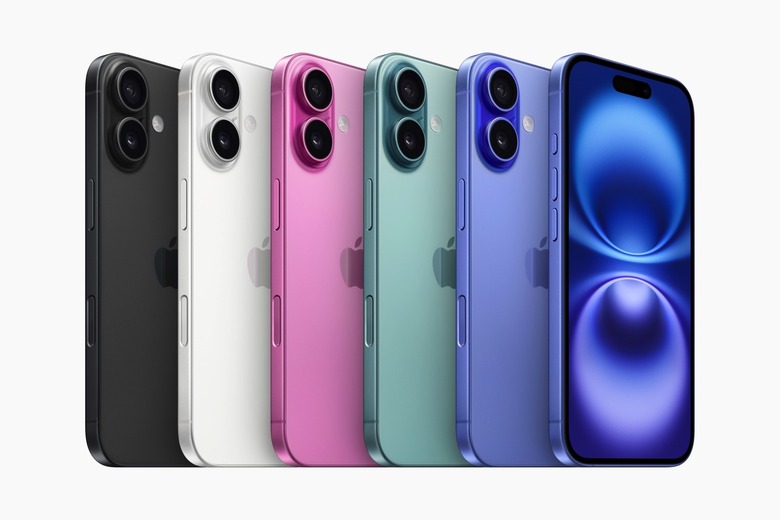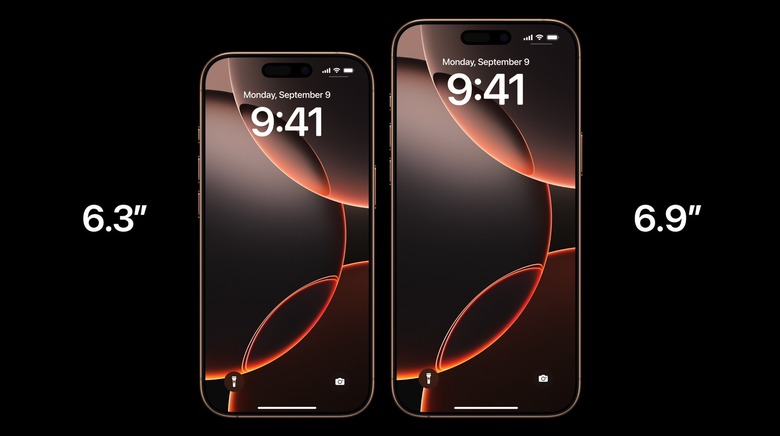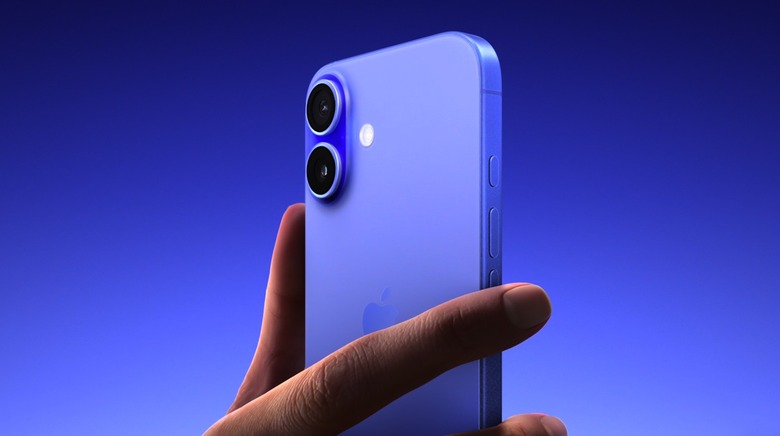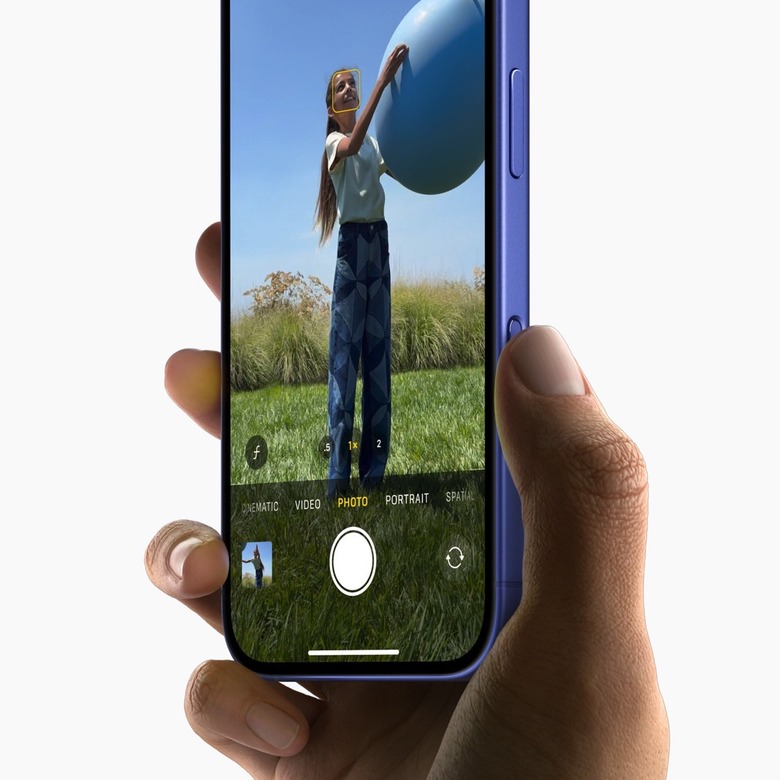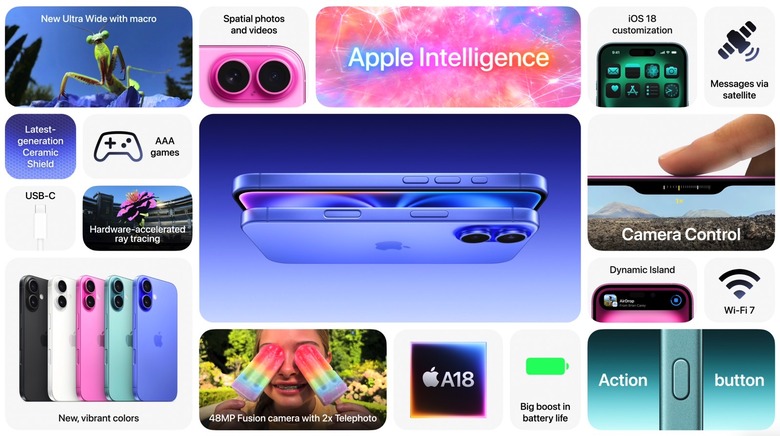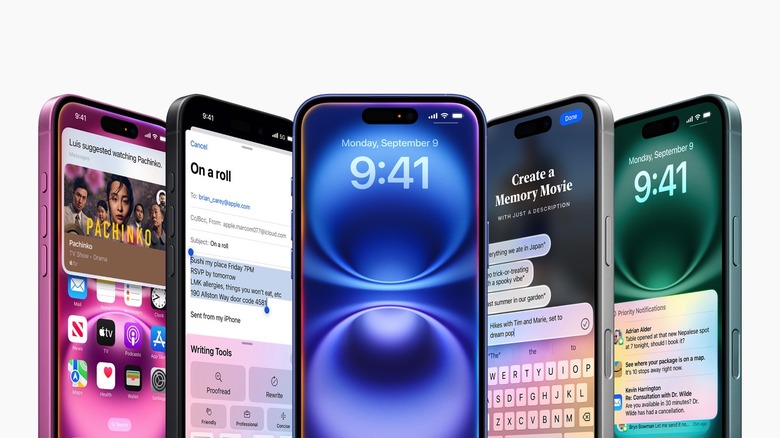I Don't Need The Pro Version Of This Year's iPhone 16, And You Probably Don't Either
I knew I'd get an iPhone 16 variant once Apple unveiled the 2024 iPhones, but I waited for the event to make up my mind. I want Apple Intelligence and the iPhone 16's Camera Control button. All four devices support these features. In years past, I'd go for the 6.1-inch iPhone Pro model without skipping a beat. I'd want the 256GB storage option, as that's good enough for my current needs. But the iPhone 14 Pro I'm currently rocking made me realize I can no longer justify Pro phones.
The base iPhone model is more than enough for me, and it's probably enough for you too. That's especially true for the iPhone 16 and 16 Plus. They're not just cheaper refreshes of last year's iPhone 15 Pros.
I also want an iPhone with a larger display than the usual 6.1-inch version. With all that in mind, I'll tell you that the iPhone 16 Plus is the next iPhone I'll use. This model is a great deal compared to the iPhone 16 Pro Max. The 256GB iPhone 16 Plus costs $999, which is $200 cheaper than the comparable iPhone 16 Pro Max.
The size
The iPhone 16 Plus and the 16 Pro Max have almost the same dimensions. The Pro Max is slightly taller (163mm vs. 160.9mm) and thicker (8.25mm vs. 7.80mm). But the iPhone 16 Pro Max has the smaller bezels, which allows Apple to pack a 6.9-inch display instead of the Plus's 6.7-inch screen.
The screen
The screen performance is almost identical when it comes to brightness. That's 2000 nits peak brightness (outdoor) and 1600 nits peak brightness (HDR) for both phones. Typical brightness is set at around 1000 nits.
The iPhone 16 Pro Max supports refresh rates of up to 120Hz, which makes the Always-on display functionality possible. But I don't use any of them, despite having them available on the iPhone 14 Pro.
The weight
The iPhone 16 Pro Max features a titanium frame, while the 16 Plus packs an aluminum case. The iPhone 16 Plus is lighter at 199 grams, compared to the 227 grams for the Pro Max. On that note, the regular iPhone 16 Pro also weighs 199 grams.
The cameras
The camera is easily the biggest difference between the iPhone 16 Pros and non-Pros. The iPhone 16 Plus features a dual-lens system with a 48-megapixel f/1.6 Fusion (wide) lens and a 12-megapixel f/2.2 ultra-wide camera. The iPhone 16 Pro Max has three cameras on the back, including a 48-megapixel Fusion f/1.78 camera, 48-megapixel f/2.2 ultra-wide, and 12-megapixel f/2.8 telephoto zoom lens.
That means I won't get the same optical zoom on the Plus, but the camera experience will be generally similar.
For the sake of this comparison, I'll say the Plus does not support Night mode portraits, Apple ProRAW photography, ProRes video recording at up to 4K/120fps, log video recording, Academy Color Encoding System support, and the four-mic array available on the iPhone 16 Pro Max. The Plus also lacks support for ProRs video recording at up to 4K/60fps on the selfie camera.
But I can live with all of that. I'm definitely not going to shoot The Weekend's next music video on an iPhone to need all that video recording power.
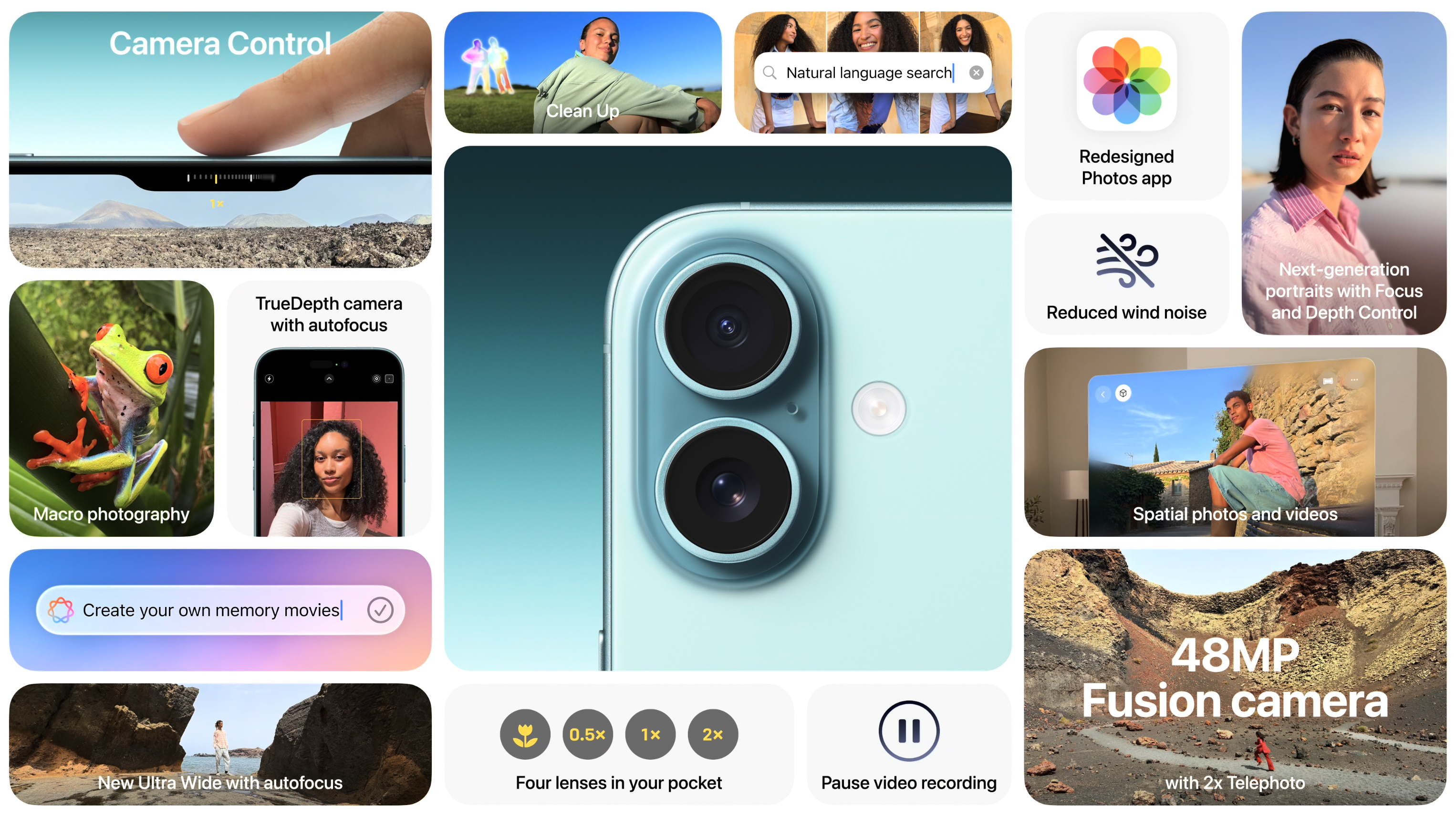
If you want to shoot pro video on the iPhone, you'll probably need to hook up an external drive. The iPhone 16 Pro models will support USB-C speeds of up to 10GB/s (USB 3), while the iPhone 16 and 16 Plus only support the regular USB 2 speeds.
The battery life
Finally, I'm not getting the best battery life possible from an iPhone 16 model, but the iPhone 16 Plus gets tremendous estimates. We're looking at 27 hours for video playback, 24 hours for streamed video playback, and up to 100 hours of audio playback.
The iPhone 16 Pro Max's battery estimates go up to 33, 29, and 105 hours, respectively. As for the iPhone 15 Plus, last year's handset lasts for 26, 20, and 100 hours, respectively.
What I'm getting out of the iPhone 16 Plus
The iPhone 16 Plus has some other notable improvements over the previous Plus. I'm getting the Action and Camera Control buttons, macro photography and spatial video and photo support, faster wireless charging (up to 25W MagSafe charging with a 30W adapter), and Apple Intelligence.
The latter is possible thanks to the A18 chip that powers the iPhone 16 and 16 Plus. Like the A18 Pro inside the Pro models, the A18 is a new 3nm chip, not last year's A17 Pro. The two A18 chips are almost identical. They both feature 6-core CPUs with two performance and four efficiency cores, and 16-core Neural Engines. The A18 Pro has a 6-core GPU compared to a 5-core GPU on the A18.
The A18 CPU is 30% faster than the iPhone 15 Plus's A16 Bionic. The GPU is 40% faster. The A18 Pro offers the same performance bump as the iPhone 14 Pro. Again, the iPhone 15 and 14 Pro share the same processor. The A18 Pro CPU is 15% faster than the A17 Pro. The GPU is 20% faster than last year's Pros. That means the A18 is also faster than the iPhone 15 Pro versions.
The iPhone 16 Plus has some extra perks compared to the iPhone 15 Pros. The Camera Control button, support for the latest-gen Photography styles, spatial photos and videos support, 1 nit minimum screen brightness, an anti-reflective coating on the Fusion lens, wind noise reduction and audio mix sound recording, and faster MagSafe charging.
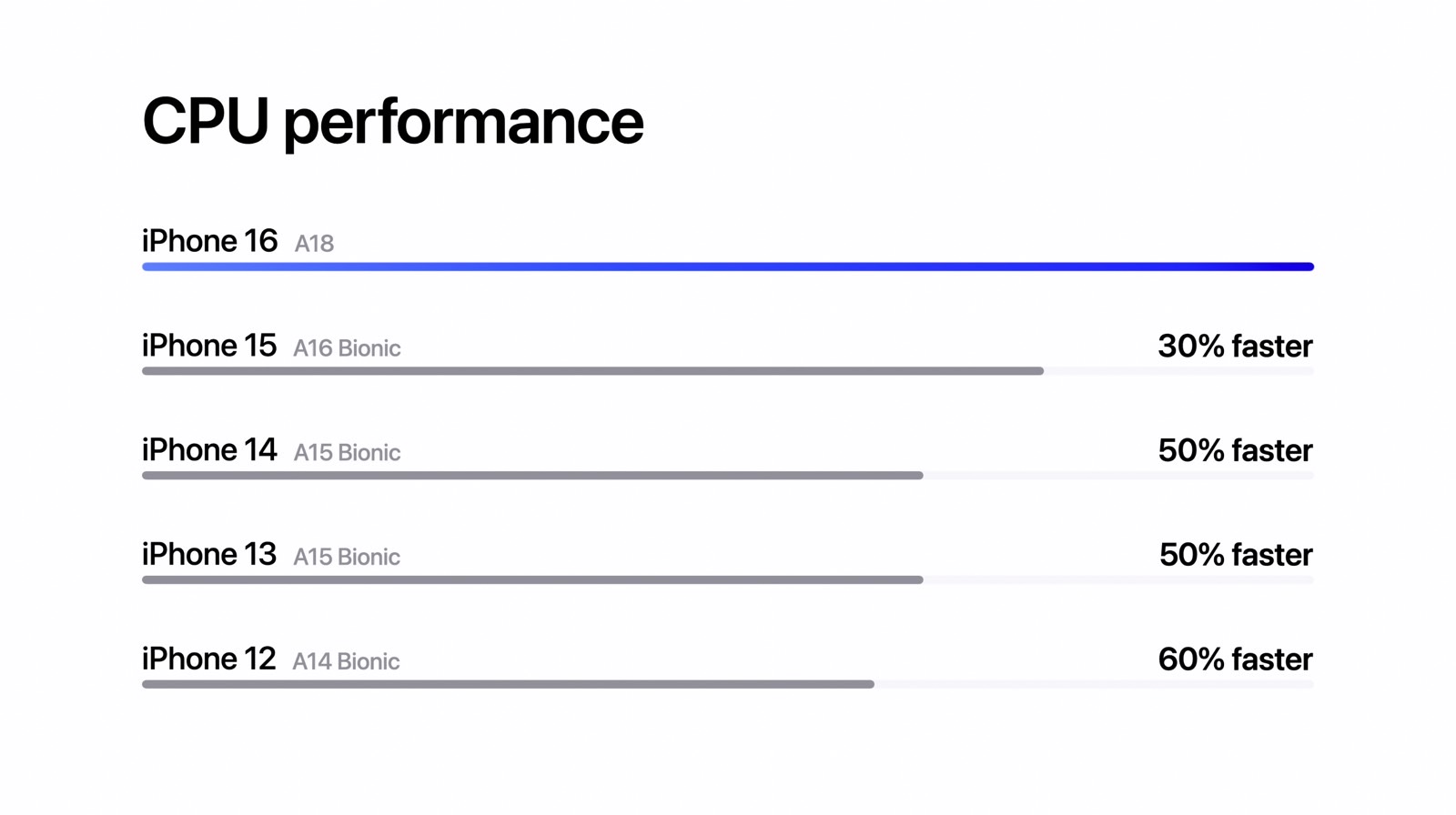
That should also tell you that the iPhone 16 Plus is a better phone than the iPhone 15/Plus. Remember, last year's iPhone 15 and 15 Plus might be cheaper, but they won't support Apple Intelligence.
Finally, I'll also mention the color options. I'm more of a fan of the iPhone 16 Plus color options than the iPhone 16 Pro. I'llWhen the time comes, decide between Ultramarine and Pink.
One more thing
The real iPhone I'm eying is next year's ultra-slim iPhone 17 Slim. This will be one of those years when I'll use a new iPhone just for one year. That makes choosing the Plus over a Pro even easier. Remember that the Air will also have compromises, as it won't be a true Pro flagship.
On the same note, I'm already considering testing at least one more iPhone 16 flavor before we get to the iPhone 17 Air. But that's a different story.
